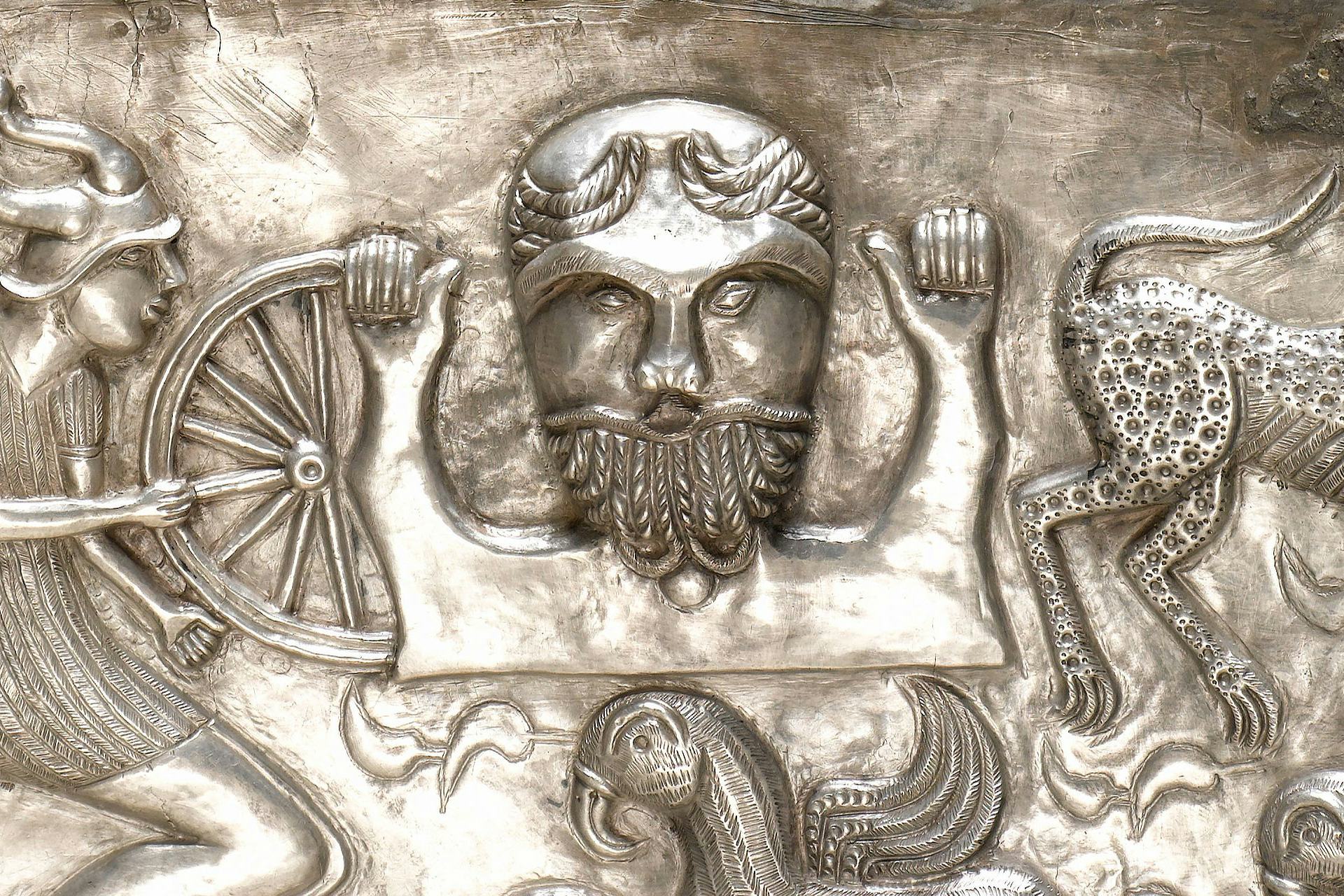Taranis

Overview
Taranis was the Thunderer, the pan-Celtic god of storms and thunder. Associated with bad weather and sacred wheels, he held an important role in many Celtic pantheons, yet little was known about him.
Etymology
Taranis’ name literally meant “thunder,” appears to have been derived from the Proto-Celtic toranos, and is evidenced in several surviving Celtic languages. His name was similar to many Indo-European thunder gods. Because of his association with the sacred wheel, he was called a “wheel god.”
Attributes
Taranis was a powerful deity, commanding the storms which terrified early man. He was a protector and leader of the gods and, according to the Romans, this made him worthy of human sacrifice. He formed a sacred triad with the gods, Esus and Toutatis, two other important Gaelic deities who were frequently found at sites bearing Taranis’ symbols.
Taranis wielded a powerful thunderbolt as a weapon, not unlike a spear, and his symbol was a wheel, one of the most sacred Celtic symbols found across Europe. The wheel represented mobility, one of the strengths of the ancient Celts, and may have represented just how quickly a storm could catch ancient humans unprepared.
Mythology
Taranis was known to us primarily through the Romans, but also via his connection to other pantheons.
Historical Scholarship
And those who pacify with blood accursed Savage Teutates, Hesus’ horrid shrines, And Taranis’ altars cruel as were those Loved by Diana, goddess of the north -Pharsalia, Book I, Lucan
Taranis was a Celtic god described in several Roman sources, including Pharsalia by the poet, Lucan, though this may have been a creative invocation. Sacred sites found around Europe illustrated his widespread worship (though no evidence of human sacrifice was directed at him), with statues or wheels located in Ireland, Britain, Gaul, Spain, and across the Rhineland and Danube areas of central and eastern Europe.
Other Mythology
Taranis was known in Irish mythology as Tuireann, and played an important part in the story of Lugh, another pan-Celtic deity. He was also related to the Gaulish Ambisagrus. For the Romans, Taranis was associated with both Jupiter and the cyclops, Brontes, whose name similarly means “thunder.”
Other Indo-European thunder gods shared a common etymology with Taranis, most notably the Norse Thor. Baltic deities, such as Perkunas and Slavic Perun, also resembled Taranis’ name.
Pop Culture
Taranis was popular in modern media, including:
In Marvel Comics, Taranis was presented as Thor’s primary Celtic rival and ally;
Taranis was mentioned in the French comic, Astreix’s “Asterix and the Soothsayer” storyline.